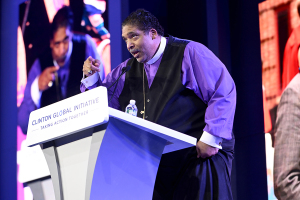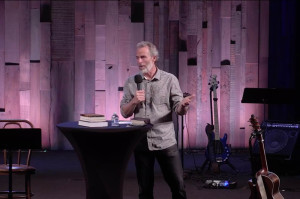When Theology Meets Evangelism
The first time I read Michael Green's Evangelism in the Early Church in 1984, it was a required textbook for a course at seminary. My subsequent six readings since then have all been the result of my desire to be reminded of the passionate heart of evangelism of the early Church. Green's book, published in 1970, looks at the Church from the time of the Apostle Paul to Origen in the middle of the third century.
One of the greatest appeals of the book is the deep commitment to both theology and evangelism, and the recognition that the two cannot be divorced. Green says it well in the preface: "Most evangelists are not very interested in theology. Most theologians are not interested in evangelism. I am deeply committed to both."
An Emerging and Encouraging Trend
Though my observations are anecdotal at this point, I am greatly encouraged to see more young church leaders today with a passion for both theology and evangelism. They realize that true evangelism will not take place without a solid biblical and theological foundation. And they realize that theology is dead unless it is lived out passionately in ministry and evangelism.
Nearly four decades ago, Michael Green wrote about that reality in the early Church. And he rightly insisted that theology and evangelism must not be separated in the Church today.
Evangelistic Motives in the Early Church
Green noted some of the evangelistic motives of the early Church. Not surprisingly, each motive has deep theological and biblical roots.
A sense of gratitude. The early Christians were tireless and unselfish in their evangelistic zeal. They were prepared to sacrifice all, even their own lives, in order to share the gospel of Christ. One of their primary motives was their overwhelming gratitude for what Christ did for them. So many of the biblical truths affirm this reality. For example, "Love consists in this: not that we loved God, but that He loved us and sent His Son to be the propitiation for our sins" (1 John 4:10, HCSB). Similarly, we hear the Apostle Paul declare, "And I no longer live, but Christ lives in me. The life I now live in the flesh, I live by faith in the Son of God, who loved me and gave Himself for me" (Galatians 2:20).
A sense of responsibility. The biblical mandate of evangelism is clear. We hear Great Commission passages such as Matthew 28:18-20 and Acts 1:8 repeated often. But the Bible is replete with passages that reflect this sense of responsibility. Paul, in his farewell address to the Ephesian elders, reported, "I testified to both Jews and Greeks about repentance toward God and faith in our Lord Jesus" (Acts 20:21).
A sense of concern. Jesus came to seek and to save the lost (Luke 19:10). The simple but powerful truth is that there are really two categories of humanity: the saved and the lost. The saved will spend eternity with Christ; the lost will spend eternity separated from Christ in hell. We must proclaim with passionate concern that Jesus in the only way of salvation (John 14:6). Our hearts should break over the lostness of humanity, and our response should be obedient and urgent evangelism.
A Great Commission Resurgence: When Theology Meets Evangelism
Will the evangelical church in America experience a Great Commission resurgence? With the early Church as our pattern, we can have great hope that such a resurgence will take place.
But no great evangelistic move of God has ever taken place without the rightful wedding of theology and evangelism. When evangelism has no theology, it degenerates into human-made methods and manipulation. When theology has no evangelism, it degenerates into a dry and powerless academic exercise.
May we see a Great Commission resurgence like the early Church.
May our motives be deeply theological.
May our actions be passionately evangelistic.
And may God do a great work in our land.




























